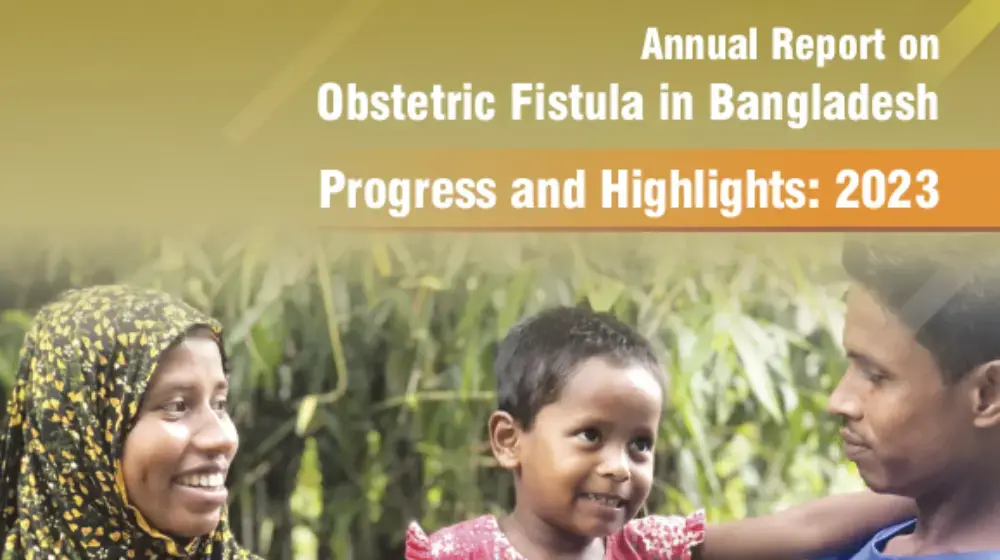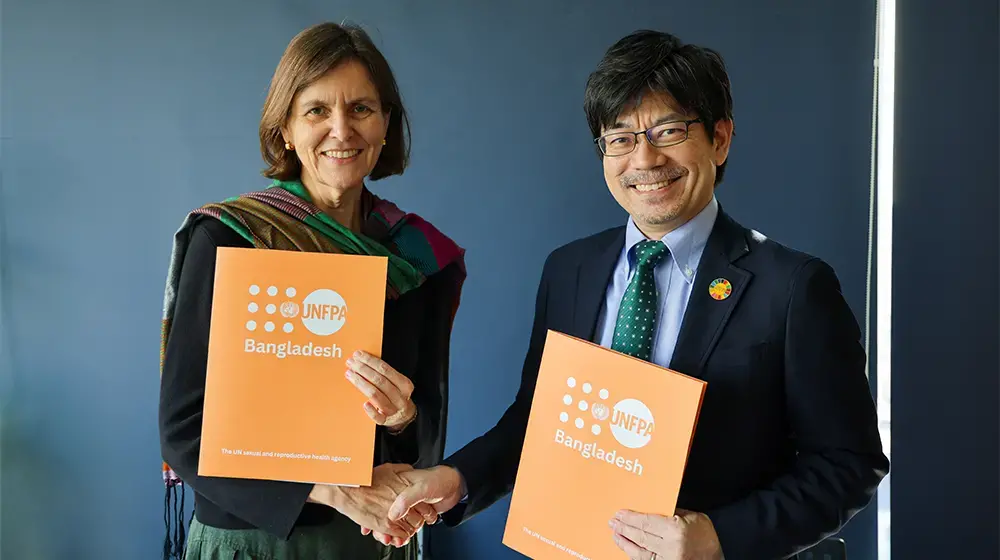(Dhaka, 7 June 2020): In emergency situations, women and girls are often at higher risk of violence, and their sexual and reproductive health needs are often overlooked. Not being able to use adequate health facilities often results in women facing unsafe deliveries, which can lead to long-term health consequences such as obstetric fistula or even preventable maternal death. Limited access to life saving sexual and reproductive health services, including safe delivery and pre- and post- natal care, family planning and essential supplies such as food and water, also make women and girls more vulnerable to gender-based violence.
To ensure that women and girls continue to receive life-saving sexual and reproductive health services during the COVID-19 crisis, UNFPA Bangladesh is conducting its first-ever virtual training on the Minimum Initial Service Package (MISP) for health care professionals.
What is MISP?
The four-day training will increase the capacity of 40 midwives, nurses, and doctors to provide life-saving sexual and reproductive health services in emergency contexts, such as preventing maternal and newborn deaths, preventing sexual violence, and reducing HIV transmission. As this is the first time that the MISP training will be conducted virtually, the process will be documented to evaluate how it can be replicated in other countries as well.
“As Bangladesh copes with the challenges posed by COVID-19, the ongoing natural disaster season poses an even greater risk to the sexual and reproductive rights of women and adolescent girls. This innovative virtual training on MISP will certainly complement the outstanding efforts of the Government of Bangladesh in developing capacity to meet the increasing needs of life-saving sexual and reproductive health services during this multifaceted health and natural crisis”, said Omar Ballan, the Acting Chief of Health at UNFPA Bangladesh, while welcoming the participants to the online training.
The training will focus on how the actions outlined by MISP can be safely implemented during the ongoing COVID-19 pandemic. The participants will receive an understanding of how COVID-19 limits women’s access to sexual and reproductive health services and to comprehensive prevention and response of gender-based violence, as well as how the conditions created by COVID-19 affect how MISP can be conducted in the aftermath of natural disasters.
A participant at the training, Dr Shapla Pinki Saha, Facility Mentor, said, “It is indeed a great opportunity for us to be part of this very useful training at this time, and to be able to join the training remotely. We thank UNFPA for this opportunity, and hope that it will help us to save even more lives.”





